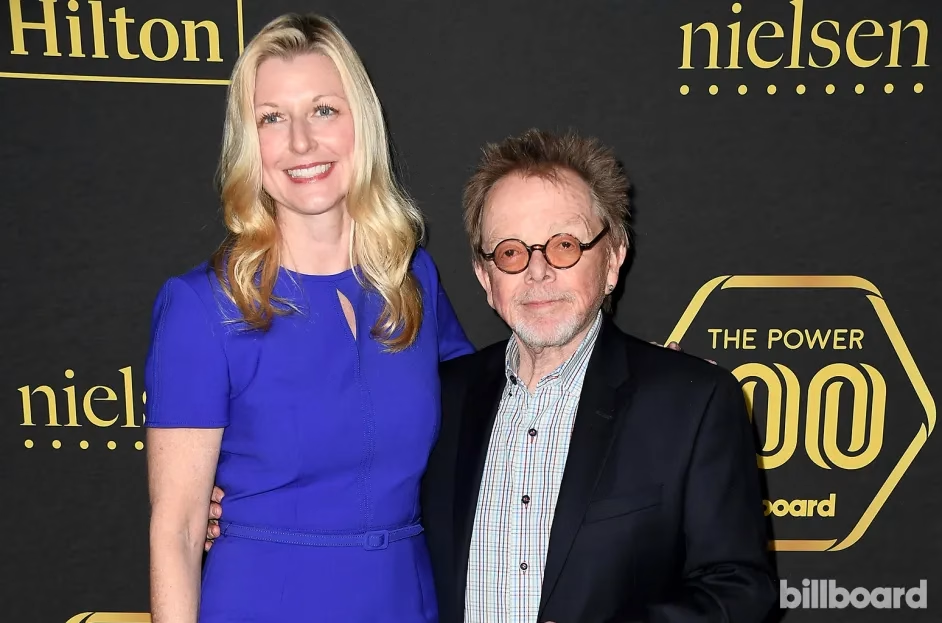At its annual meeting for members, ASCAP officials reiterated the message it delivered earlier in the day when it announced its record breaking 2023 financial results, reminding members that it was an organization run by the members for its members just like any true democracy.
While its chief rival BMI was barely mentioned by name, the performance rights organization’s executives repeatedly reminded members that unlike the other PRO operating under a consent decree, which last year switched to for-profit status and was sold to a private equity firm, ASCAP as a membership organization doesn’t have owners. Further, it pays out all money collected after expenses to its members.
“ASCAP is a democracy; it’s an idea that has stood the test of time,” songwriter and ASCAP chairman Paul Williams said in his opening address to attendees at its annual meeting, held in New York City at the Jazz at Lincoln Center Hall on Feb. 27. “We have stayed true to our fundamental values. We believe in you as gifted humans… We believe in the value of your music and that you should all earn a fair wage for [your creations] and that your rights should be protected. Full Stop.”
Williams reminded the audience that ASCAP is governed by 12 creators and 12 publishers through a board elected by members that makes decisions and sets policies with “your best interest at heart. That is democracy. That is ASCAP.”
Moreover, Williams added that while ASCAP isn’t a union, he wanted to “speak more about democracy and unity and collected strength… We are strongest when we aggregate all of our copyrights together in a blanket license.”
With artificial intelligence now very much at the forefront of conversations, he said ASCAP is on guard at Capital Hill “defending your rights” with Congress; and he urged songwriters to “be engaged with ASCAP” in defending your rights. “Without your representation, we cannot protect your copyrights so register to vote,” he added.
He said like in the past, ASCAP would continue to represent songwriters with lawmakers, reminding them that ASCAP has consistently helped protect songwriters in the past when other new technology came online, like the advent of cable, then Napster and more recently streaming. “Too many times it looked like our livelihood would be decimated, but we had ASCAP on the front lines,” Williams said. “We always emerge with a way to license, monetize and preserve our livelihood.”
Williams closed his opening remarks by adding, “God bless ASCAP for feeding my kids and now my grandkids.”
ASCAP CEO Elizabeth Matthews followed by boosting the singularity of being an ASCAP member, pointing out it is the only PRO with publicly available royalty rules. “The rules are on the website,” she said. “We don’t hide the ball.”
She also stressed that the ASCAP board believes in a free market, with a willing buyer and a willing seller. “We want less government intervention; we don’t want the government telling us how much your music is worth,” she said. That’s why ASCAP opposes a compulsory license, given “it suppresses the value of music,” pointing to the mechanical license as an example of what happens when a compulsory license is imposed by government.
She highlighted that the organization protects songwriter rights when needed, filing 40 litigations in 2023 to make sure ASCAP songwriters got paid what they deserve, including ongoing litigation against terrestrial radio, which she said aren’t paying enough for the music they play, although that suit was filed by the Radio Music Licensing Committee against both ASCAP and BMI.
Moreover, she explained how ASCAP will remain diligent to ensure that Congress understands both the opportunity and the threat of AI, telling legislators that “without songwriters, there is no art in artificial intelligence.” She acknowledged AI is “the biggest existential threat” but also pointed out that creators can use AI in making music, just as ASCAP can use AI to track and match song plays to writers and publishers. So when ASCAP visits Capital Hill, it tells members of Congress that songwriters are like small business owners who invest in equipment to make music — so they “have earned the right to get paid and have credit” if AI is used to mimic creators and artists.
Matthews pointed out the differences between her organization and BMI now that the latter is a for-profit entity, saying that after taking a reasonable reserve — and covering expenses — 90 cents of every dollar is distributed to ASCAP songwriters. She wondered if BMI has debt, how much of what it collects goes to paying off interest on those loans; if it has shareholders, she wondered how much profit they’ll take in. She also asked who were the shareholders of New Mountain Capital, which bought BMI, while questioning if broadcasters are still in the mix. Finally, she noted that BMI says it plans on withholding 15%, but she wondered whether that was from a total calculated after paying off interest and whatever profit shareholders take. She concluded by pointing out these questions are out there because BMI is no longer releasing any financial information.
“We want you to understand the difference” between BMI and ASCAP as she proceeded to highlight the organization’s annual financial report with a slide presentation that began by showing its record breaking year, with $1.736 billion in collections, up 14.1% from the prior year’s total of $1.522 billion.
In response to Williams’ and Matthews’ comments, a BMI representative emailed Billboard a statement that read, “We have been very clear about our strategy and current business model, which provides us with the resources we need to invest in our business while delivering record distributions. There has been a lot of noise out recently, so to clarify, as we previously shared, any debt incurred from investments will not come out of distributions. We are focused on the future, not the past, and on the many opportunities to create more value for our affiliates.”




